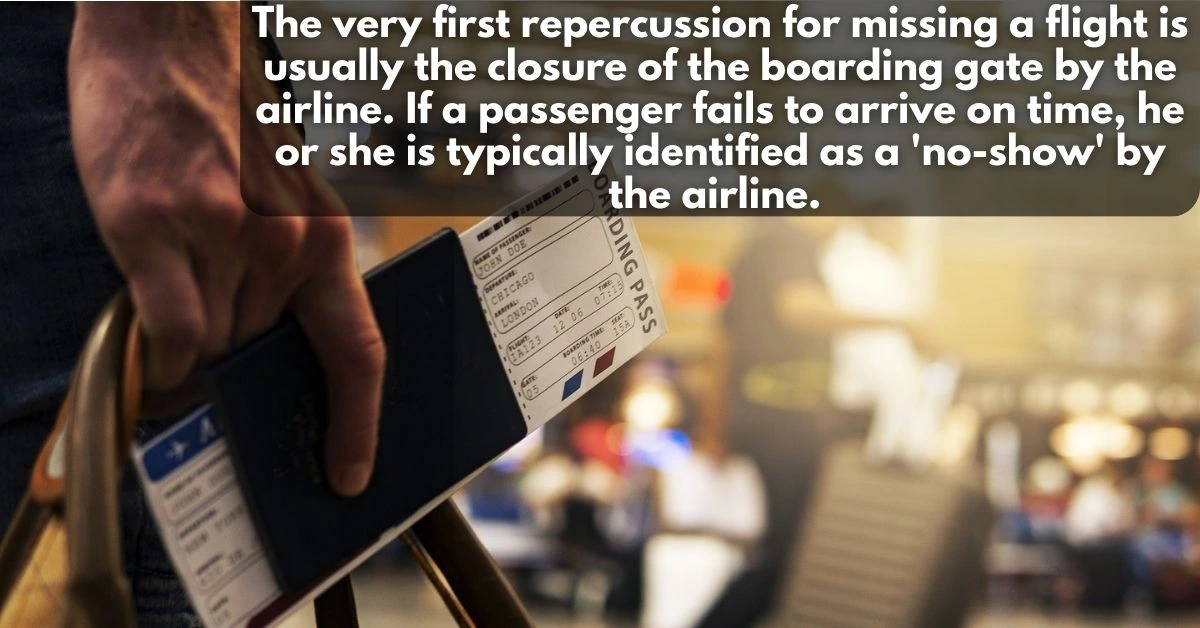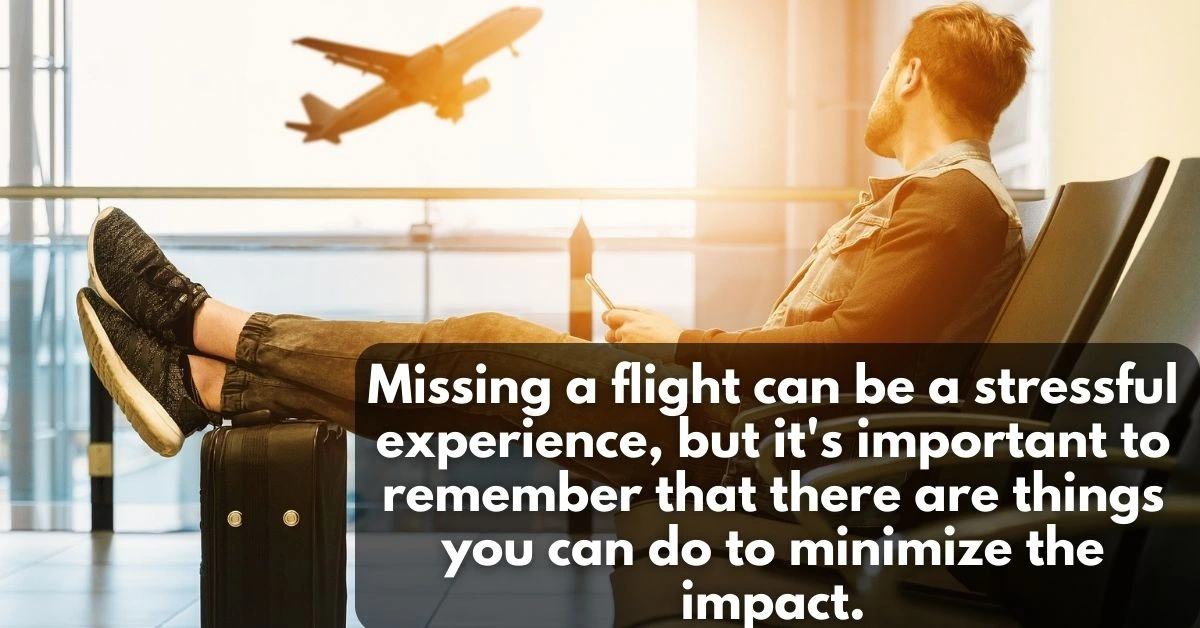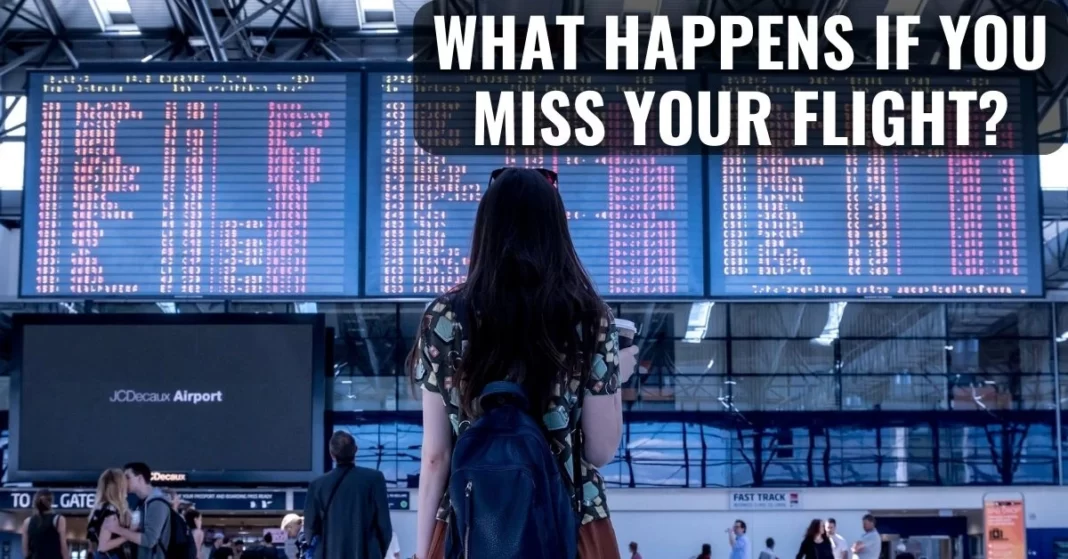Traveling can be an exhilarating experience, especially when everything goes as planned, your luggage fits perfectly in the overhead bin, and you reach your destination on time. However, the harsh reality is that things don’t always go according to plan. Unfortunate events can occur which may lead to you missing your flight—the very lifeline of your journey.
In fact, missed flights aren’t as rare as you might think; they can result from a myriad of reasons, from slight oversights to major emergencies. This blog aims at the reasons why passengers miss flights, what happens if you miss your flight, and the recourse available to such stranded travelers.
Table of Contents
Possible Reasons for Missing a Flight
What Causes Flight Misses?
One of the most common reasons for missing a flight is late arrival at the airport. This could be due to poor time management, unexpected traffic, or issues with public transportation.
Airline policy usually requires passengers to arrive at least two hours before a domestic flight, and at least three hours before an international flight, to accommodate security checks and boarding processes. Arriving any later increases the risk of missing the flight, as airlines are not obligated to delay the flight for tardy passengers.
A second prevalent reason is issues with documentation for international flights. Passengers presenting expired passports, incorrect visas, or lacking necessary vaccine certificates may be denied boarding by the airline. It is therefore crucial to double-check all personal and travel documents long before the departure time. Lastly, unforeseen health emergencies can also result in missing a flight.
Understanding Airlines’ Policies for Missed Flights
Flight missed scenarios are treated differently depending on each individual airline’s policy. Typically, when a passenger misses a flight due to the airline’s delay, such as a late connecting flight provided by the same carrier, the airline will book the passenger on the next available flight with no extra cost.
In addition, if unforeseen emergencies prevent the passenger from reaching the flight on time, many airlines may show compassion, provided that they are informed on time, but this is highly dependent on the airline’s specific policy.
On the other hand, when the passenger misses the flight due to circumstances under their control, such as late arrival or documentation problems, the airline’s response may not be as understanding. In these situations, airlines are not required to rearrange the flight and often charge a rebooking fee if they do.
Passengers might also need to cover any fare differences for the new flight. In more severe cases, the passenger could forfeit the entire value of their ticket. For these reasons, travelers should ensure they understand their airline’s missed flight policy, most of which can be conveniently found on the airlines’ websites.

Consequences and Solutions of Missing a Flight
Immediate Impact of Missing a Flight
The very first repercussion for missing a flight is usually the closure of the boarding gate by the airline. If a passenger fails to arrive on time, he or she is typically identified as a ‘no-show’ by the airline. This can potentially lead to your return flight or other segments on the same booking being canceled.
Generally, airlines do not offer compensation if you miss the flight due to reasons within your control, such as arriving late to the airport. Conversely, if unexpected situations beyond your control, like sudden illness or bereavement, prevent you from making the flight, some airlines might provide compensation. This, however, is not a universal rule and is heavily reliant on the specific policies of each airline.
Solutions and Remedies After Missing a Flight
After missing a flight, the most immediate solution is to inform the airline as soon as possible. Some airlines operate under the “flat tire” rule, wherein passengers who missed their flight due to issues, such as trouble getting to the airport, can get on the standby list for the next flight. The passenger needs to arrive within two hours of the missed flight’s departure for this. However, this is not a rule airlines are required to follow, and its execution largely depends on the airline’s policy.
If rebooking is necessary, some airlines might offer waivers for rebooking fees under specific circumstances. The conditions vary widely though, and it’s essential to go through the airline’s missed flight policy for the same.
If the cause of missing a flight falls under the extenuating circumstances of the airline’s policy, you might be able to claim a refund. Still, this would depend heavily on the type of fare purchased (refundable or non-refundable) and the individual airline’s policies.
Missed flights can turn any journey into a nerve-racking experience, leaving travelers feeling marooned and helpless. However, knowledge is power, and understanding how airlines deal with missed flights, the immediate repercussions and available Silver linings can certainly help alleviate the stress associated with such situations.
So next time you or someone else is racing against time to catch a flight, remember that missing a flight isn’t the end of the world but rather the beginning of a new chapter in your travel story – one filled with newfound lessons and experiences.
Conclusion on ‘What happens if you miss your flight?’

Missing a flight can be a stressful experience, but it’s important to remember that there are things you can do to minimize the impact. By following the tips in this blog post, you can ensure that you get to your destination as quickly and easily as possible.
Here are some important :
- Alert the airline as soon as possible. This gives the airline a heads-up and may improve your chances of getting rebooked on a new flight. You can call the airline, use their app, or contact them through social media.
- Inquire about getting rebooked on another flight. Ask the airline about any rebooking fees or fare differences that may apply. Some airlines have a “flat-tire rule” that allows passengers to rebook their flight without penalty if they arrive at the airport within a certain amount of time before the scheduled departure.
- If there are no seats available on the next flight, ask to be placed on the standby list. Most airlines will let you stand by for a later flight for free.
- If you cannot rebook on your original airline, try to rebook on a budget airline or use airline miles to book a last-minute ticket.
- Track your luggage. The airline will try to reroute your bag to your new flight’s final destination. If the airline cannot reroute your bag, it will be returned to the carrier’s baggage claim at your departure airport.
Here are some additional tips:
- If you are going to be late for your flight, call the airline as soon as possible to let them know. This will give them a chance to start looking for a seat for you on the next flight.
- If you are flying with checked luggage, make sure to bring your boarding pass with you to the airport. This will help the airline find your luggage if you miss your flight.
- If you are traveling on a budget airline, be sure to check their rebooking policies before you book your flight. Some budget airlines charge high rebooking fees, so it is important to be aware of this before you book.
If you miss your flight due to circumstances beyond your control, such as weather or a medical emergency, you may be entitled to a refund or compensation. You can contact the airline or the U.S. Department of Transportation for more information.





